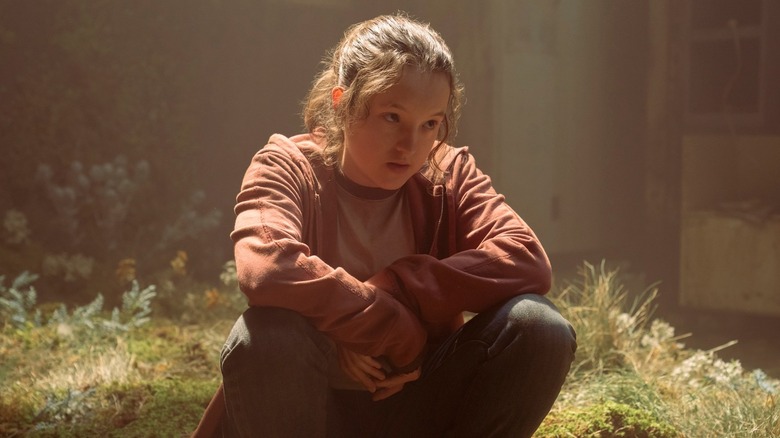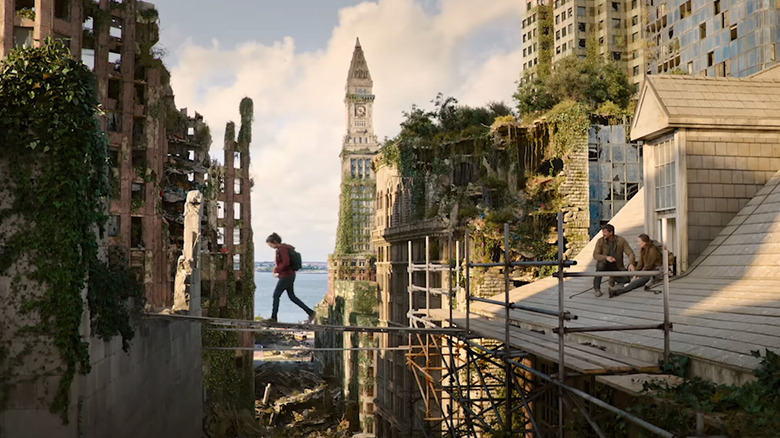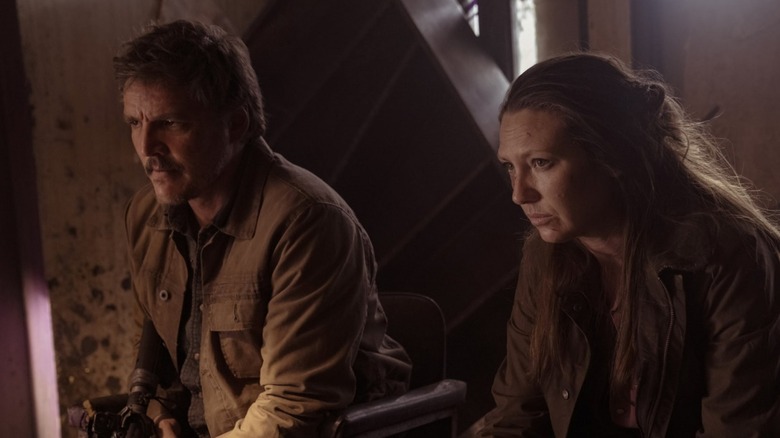Is HBO's The Last Of Us A Little Too Much Like The Video Game?
With how exceptionally cinematic and well-acted the games are and how good they look on PlayStation 5, "The Last of Us" was always going to face scrutiny for whether it really needed to be adapted for television. Shortly after HBO announced the show in March 2020, series co-creator Neil Druckmman — who is also writer and director of both games and "Uncharted 4" — admitted:
"...with TV, you have to figure out how it communicates ideas or tells stories. In removing the interactivity of the story, how do you make it unique for this other medium? It's an interesting challenge, and I think there's a lot to learn from it."
In a December 2022 interview with The New Yorker, Druckmann and co-creator Craig Mazin sounded confident they'd cracked the code. The two spoke knowledgeably on past blunders like 2005's "Doom," which as a too obvious homage, features a first-person action sequence in its finale — a cardinal sin repeated in the Paramount+ "Halo" series. As Mazin put it, "where video-game adaptations have gone wrong so many times — they try to replicate the action. It's just the wrong medium. That's that. This is this." Druckmann added "they think people want to see the gameplay onscreen."
While episode two of "The Last of Us" shines from a dramatic and action perspective, it does not exactly fulfill Druckmann and Mazin's promise. After a cold opening introducing provocative new context on the Cordyceps outbreak, the episode becomes a faithful recreation of the game's third chapter "The Outskirts." It not only borrows plot and dialogue, but blatantly renders gameplay and puzzle mechanics from the game in live action. Those unfamiliar might overlook these references, but fans will struggle to ignore them.
Shot for shot
Whereas episode one combines game elements with updated creative decisions, episode two seems even more intent on conjuring the atmosphere and experience of playing "The Last of Us." From the leaning skyscrapers to a detour through an American History museum, the episode painstakingly invokes the Boston-set segment of the game. But it's the characters' movements that so apparently resemble their pixelated counterparts.
Joel, Ellie, and Tess advance through the episode much like they would move through a level. Joel pushes over a file cabinet to pass through a doorway. The trio takes a shortcut through waist-deep water. Tess asks Joel for a boost up to a crawl space between dilapidated concrete columns. Joel runs out of ammo in his revolver and picks an assault rifle off the floor to shoot down an Infected at the last second. The characters cross between two buildings on a wooden plank and climb down a rusty ladder barely bolted in place. In a very similar moment to the first game, the ceiling collapses in the history museum, leaving them unable to go back the way they came.
Like how 2018's "Tomb Raider" borrowed story elements and set pieces from its own 2013-rebooted video game franchise and Naughty Dog's "Uncharted" series, episode two of "The Last of Us" may leave some wishing they were playing the game instead. A bit of fan service that goes over the heads of general audiences is not necessarily a problem, but if the TV series actually does show elements of gameplay, why did the creators specifically suggest it wouldn't?
Using the medium
With how effortlessly "The Last of Us: Part II" layered new characters and subcultures onto the setting established in the first game, it's somewhat disappointing HBO based the series directly off the games rather than telling a new story in the same world. Maybe I'm overly eager to expand the "Last of Us" universe or to play the "Factions 2" multiplayer spin-off that still has no release date, but "Part II" convinced me the franchise is bigger than Joel and Ellie. References to the original game might have landed more impactfully in a story that was completely new for fans and non-fans alike. Instead, core characters reenacting game mechanics feels a bit more redundant than reverent.
But as its own distinct medium, TV can bring something new to Joel and Ellie's storyline as the season continues, and Druckmann noted this in a 2021 interview with IGN:
"there's so much action you have to have to train the player about mechanics. You have to have more violence and more spectacle to some degree than you would need on a TV show because you don't need to train people on how to use a gun. So that's something that's been really different, and HBO's been great in pushing us to move away from hardcore action and focus more on the drama of the character. Some of my favorite episodes so far have deviated greatly from the story, and I can't wait for people to see them."
Let's hope "The Last of Us" can balance nods to the game with new material going forward. As Hollywood adapts other Triple A games with strong directing and acting like "God of War," "Horizon Zero Dawn," "Borderlands," and "Mass Effect," studios will have a lot to learn from Naughty Dog and HBO's experience.


